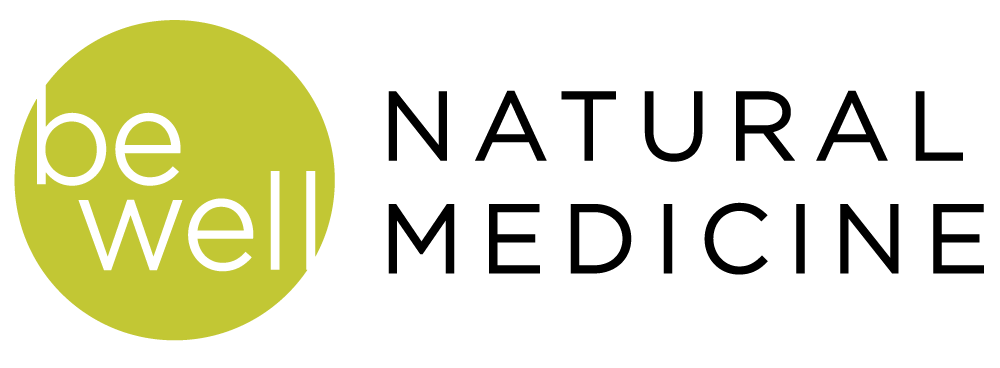5 Tips for Improving Breast Health Naturally
If asked, most of us can name at least one person who has been diagnosed, treated for, or thriving after breast cancer. While rates of breast cancer have decreased over time, 1 in 8 women (1 in 1000 men) will find themselves confronted with a diagnosis sometime during their lifetime. Some women don’t have breast cancer but experience breast swelling and tenderness, or fibrocystic breast tissue, often related to the menstrual cycle. Given these symptoms, and the majority of breast cancers are hormone-related, it’s important that individuals know these 5 tips for improving breast health.
1. Manage Stress
It may not be possible to eliminate all stress from life, but it is possible to set boundaries for yourself. Cortisol, the “fight or flight” hormone, is helpful for keeping us alert and awake, but saying “yes” to everything can lead to unintended elevations in stress, and thus cortisol. Prioritize time for self-care and intimacy, and if you’re holding a grudge – consider forgiveness, as it can help increase levels of oxytocin. Not sure how to “manage” stress? Try a few different ideas on for size – acupuncture, mindful deep-breathing, walking or simply watching nature for 5 minutes can have a profound impact on the effects of stress on the body.
2. Healthy Sleep
“An hour before midnight is worth two.” Cortisol levels follow the circadian rhythm and should reach a low point around midnight. Your body needs decreased cortisol levels at night, to allow optimal levels of growth hormone and melatonin, and regulate blood sugar. If cortisol levels are elevated at night, this can lead to increased inflammation, which stimulates cancer growth. Melatonin, however, counters this inflammation and acts as an anti-cancer signal, in addition to helping repair DNA damaged by oxidative stress. Take steps to improve sleep with the following: Aim to be in bed by 9:30pm. Watch the sunset to signal release of melatonin from the pineal gland. Avoid screen time for 1-2 hours before bed.
3. Move Your Body
Movement is one of the most well-researched “medications,” exercise decreases cancer risk and insulin resistance, improves bone density and heart, increases flow of blood and lymph through the liver and pelvis, which is essential to maintaining balanced mood, regular menses and optimal fertility. Aim for 30 minutes of intentional movement daily, and try to move your body for 1-3 minutes every hour. Depending on the individual, you may benefit from moderate-intensity walking or biking, high intensity interval training (HIIT), strength training, taichi, or yoga. Luckily, there is no shortage of options!
4. Eat Right For Your Hormones
Breast tissue and hormone-related complaints generally respond well to a whole foods diet that is high in B vitamins, magnesium, omega-3 fatty acids and fiber; and minimal in alcohol as well as processed foods that are high in sugar and trans-fats. Emphasize cruciferous vegetables (i.e. broccoli, cauliflower, collard greens, brussel sprouts, cabbage) as they contain sulphur compounds, indole-3-carbinol and folate, all of which are needed for cancer prevention and hormone metabolism. Sources of fiber like ground flax seeds contain lignans, which support estrogen metabolism and elimination via the intestinal tract. Nuts and seeds offer fatty acids that help decrease inflammation, and provide nutrients needed for balanced blood sugar and thyroid function. Hormone-free meats provide a range of bioavailable B vitamins, which are needed to balance blood sugar, prevent PMS, and help replenish deficiencies common with oral contraceptive use.
5. Reduce Your Exposure to Environmental Toxins
Breast tissue is sensitive to hormonal influences, so it’s important to minimize use of products that contain xenoestrogens which are substances in the environment that can mimic estrogen and lead to estrogen dominance (read our ultimate guide to estrogen dominance here), disrupting your body's balance of hormones. Substances including polychlorinated biphenyls (PCBs) and and Bisphenol-A (BPA) accumulate in fatty tissues, including breast tissue, and are found in plastics, cosmetics, and other household cleaning supplies. One simple step you can take to significantly reduce your exposure is switching out plastic water/food containers and opting for healthier glass and stainless steel options instead. As for the cosmetics, there are several less toxic options on the market and we appreciate being able to easily shop for them at The Detox Market, an online market that curates only non-toxic skin care products that they've tested out and love.


